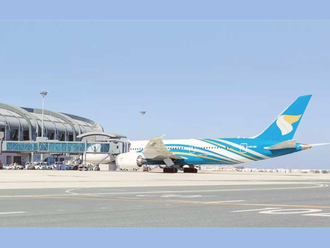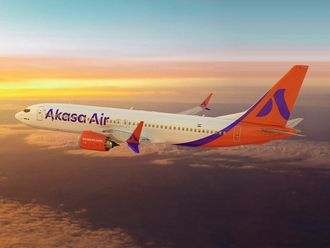
Dubai: Turkey’s national carrier, Turkish Airlines, reported a Q2 2024 profit of $591 million on Wednesday. The airline carried a total of 22.1 million passengers in the second quarter of the year. Turkish Airlines said it achieved these numbers despite ongoing global geopolitical tensions, bottlenecks in aircraft production, and engine problems.
The airline’s passenger capacity increased by 38 per cent, while global passenger capacity in the second quarter of this year just reached pre-pandemic levels (according to the International Air Transport Association).
In line with its aim to expand its fleet to 800 aircraft by 2033, the carrier increased its number of aircraft by 9 per cent in the first half of the year to 458 despite bottlenecks in aircraft production.
“With our current fleet and Airbus order, we can reach the target of 810 aircraft if we don’t replace any of our existing fleet,” Ahmet Bolat, Chairman of the Board and Executive Committee of Turkish Airlines, told Gulf News in an earlier interview.
Airline revenues
From April-June 2024, the airline’s total revenues rose by 10 per cent year-on-year to $5.7 billion. Passenger revenues increased to $4.6 billion, accounting for 81 per cent of the total, driven by contributions from the Far East region. Cargo revenues recorded 48 per cent higher annually, reaching $885 million.
The airline said in a statement that profit from main operations decreased by 26 per cent to $591 million due to competitive pressure on passenger unit revenues and the adverse effects of global inflation on costs.
Cargo growth
On the cargo operations front, Turkish Airlines said it captured a significant share of the accelerated e-commerce growth during Q2-2024 through its operations at Europe’s largest air cargo facility, Smartist.
It also said it provided an alternative for shippers who did not want to be affected by the disruptions in the Suez Canal. As a result, Turkish Cargo increased the cargo carried in the first six months of 2024 by 32 per cent annually.










